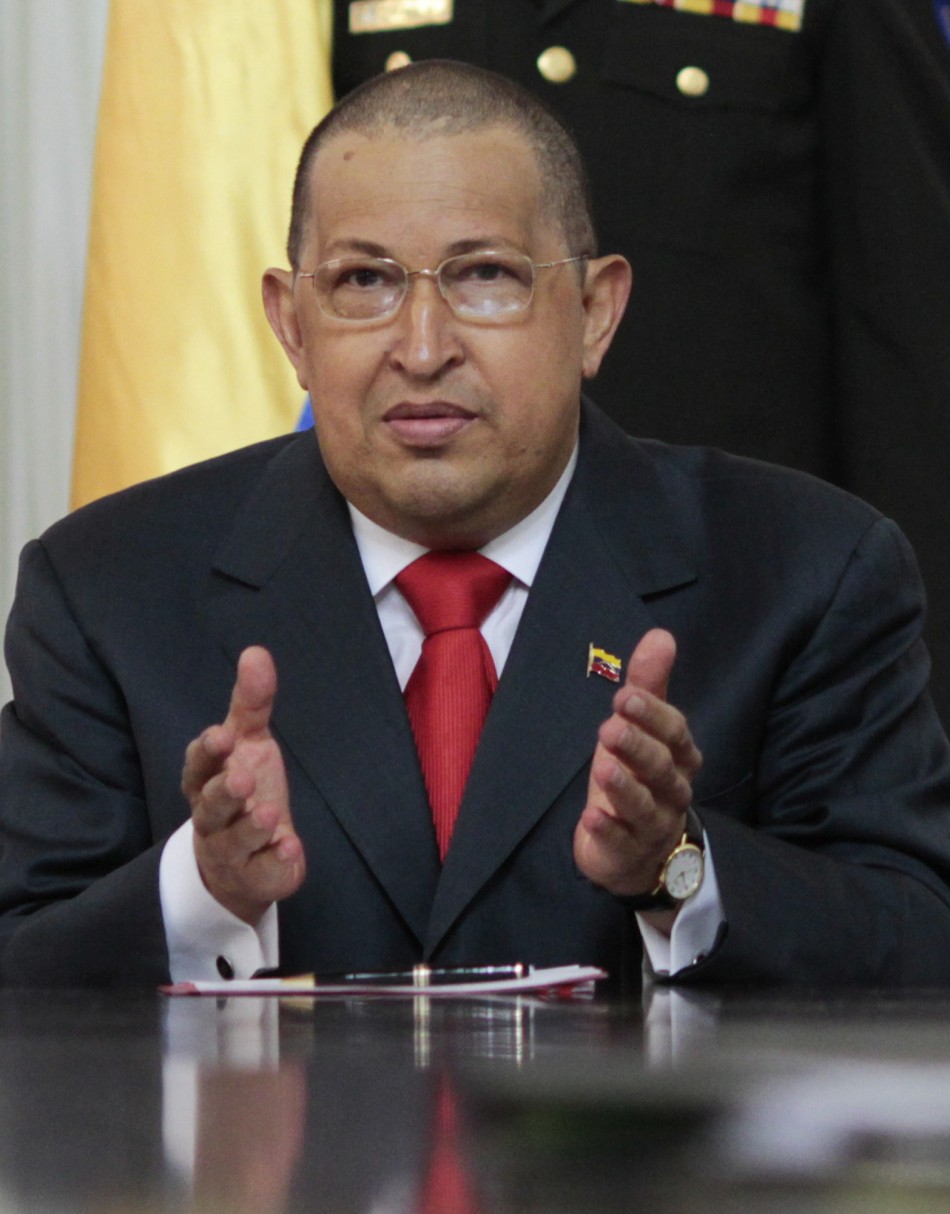Chavez’s Health Concerns Return
We are repeatedly told that timing is a crucial factor, especially if you are up for re-election in less than eight months. Venezuela’s Incumbent President Hugo Chavez is a man whose circumstances demand that he be gripped of the clock’s movement every moment of the day. In June of 2011, Chavez went to Cuba for cancer treatments but continued to sugarcoat the status of his health, even announcing to reporters upon his return in October, “Everything went perfect…I got top marks; 20 out of 20.”
Chavez’s health will continue to be a growing point of concern leading up to the election, threatening to be a major distraction to a resolute and well-organized campaign against the opposition candidate, Governor Henrique Capriles Radonski. After the aforementioned declaration that he was cancer free, Chavez’ doctors found a lesion in the Venezuelan president’s pelvis in the same area in which he had undergone surgery to remove an earlier tumor in the Cuban capital last year. Chavez returned to Cuba last week to undergo further surgery to treat the new lesion.
Succumbing to cancer was probably the last thing the incorrigible optimist had on his mind. If it were up to Chavez, he would continue to govern for centuries. Chavez has sent a message of reassurance to his followers in order to allay any concerns about his health. Nevertheless, being in and out of the office to receive treatment has brought many questions, but not enough answers. What can this mean for his precious revolutionary vision, in pluralistic and geographical terms both in a domestic and regional perspective? What will become of Chavez’s relationships with Venezuela’s neighbors, particularly the U.S?
If Chavez is voted out and Capriles becomes the new man in Venezuela how will the new president begin to change the governmental structure of the country? Will Capriles come to have the same impact as Chavez did in the region and most importantly, what would become of Venezuela’s relations with the U.S? Knowing that Capriles’ support base is becoming more stable and formidable everyday, Chavez has to realize that the current lead he possesses over Capriles is not enough to make a strong push to guarantee winning numbers in his favor.
Recent polls show that Chavez still has a small edge, but Capriles is gaining momentum; since Chavez is not able to currently engage in campaigning for presidency, there is concern that Chavez may not be able to return to the country soon enough to make a difference and that his constituency may shift towards Capriles. The big problem here is that the ill leader doesn’t have a successor in place to continue the fight and keep his administration in power. Individuals close to Chavez who are considered to be potential successors are not publicly adored, nor do they have the popularity to keep up with Capriles.
Chavez’s current inability to campaign gives Capriles a chance to close that gap, which, until now, has kept him from taking the lead. At the same time, he might be at a disadvantage; many of his followers are asking how he can effectively campaign against an ill opponent getting treatment. The lack of a competitive race would take away the legitimacy of the contender’s campaign and potentially influence the military to take matters into their hands. Those who follow the country’s politics and balloting feel that this maybe a serious setback for Chavez, and may ultimately lead to his downfall.
Chavez needs a quick recovery from his illness to show the Venezuelan people that he still has what it takes to remain their leader. In order to make an appeal to the people, Chavez will need to be out there making his case to what has always been a thankless audience. At the moment his recent legislation on social program spending is keeping him afloat, but like everything else, it will start to fade as the elections relentlessly draw nearer. If he is unable to recover, the end of his omniscience in Caracas is a real possibility.
At this time, it is hard to predict what the future holds. Presently, Chavez should be concerned, no matter how optimistic he is about his recovery, or how secretive about the details of his health he wishes to be. If he cannot revitalize himself to run for re-election, then he quickly needs to groom someone to represent him and maintain the revolution’s values and its goals, as well as establish a smooth transition of power if his health continues to decline.
If Chavez is re-elected and his health issue becomes predictable, someone must be groomed to replace and carry the torch forward for him in order to continue to lead Venezuela through a what is likely to be an extremely difficult transitional period in order to avoid the chaos that could come out of such a tension- frought situation.
Please accept this article as a free contribution from COHA, but if re-posting, please afford authorial and institutional attribution.
Exclusive rights can be negotiated.


